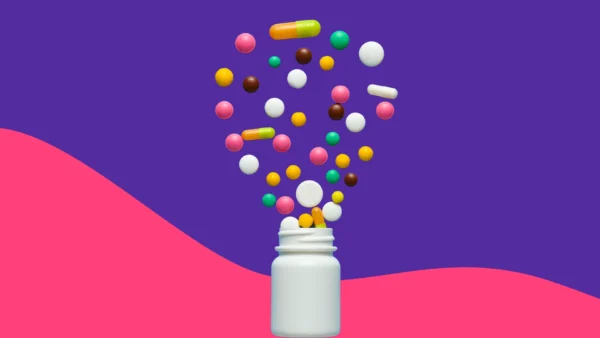As more people are using medication to treat various conditions, missing a medication dose is not that uncommon. This can be a particular concern for people who have multiple chronic conditions or are taking more than a few medications. Almost half of adults who take medication long-term are not adherent, which can have a grave impact on their health—around $100 billion is spent annually on healthcare costs associated with medication nonadherence. The worst part? It’s usually preventable.
Patients who miss medication doses are often unsure of what to do when they forget a pill. For example, they might skip the dose or double the dose. Fortunately, a missed dose is not always a serious concern, especially if a patient understands what to do. On the other side, however, many pharmacists and clinicians may not be aware of the proper way to counsel patients on missed medication protocol. In most cases, it will come down to the drug and the patient’s specific situation.
If a patient comes to you with questions on how to handle a missed dose, you’ll want to be prepared to help that patient in a reassuring way. Read on to learn more about how to counsel on a missed dose.
How to counsel patients about a missed dose
Counseling patients about missing medication doses starts with understanding why they missed the dose. Patients may miss a medication dose because they’re symptom-free, worried about side effects, or anxious about costs. For example, patients might miss an antibiotic dose because they’ve already started feeling better.
Patients who are older, have dementia, or can’t physically take their medications will generally need assistance from a caregiver. However, for many patients who miss doses, there are some straightforward ways to handle a missed dose.
Advise patients on when to take their next dose
In general, the patient shouldn’t have a problem taking a dose if it’s been two or three hours since the missed dose. If it’s been more than a few hours or it’s almost time for the next scheduled dose, the patient should skip the missed dose and take the next dose as scheduled. Advise against doubling up a dose of a medication, unless it’s birth control. If the patient misses a dose of birth control, they should take it as soon as they remember and take the next scheduled dose, even if it means taking two doses in one day.
Recommend setting alarms or reminders
Various tools and apps are available to help patients remember to take a dose. You can recommend your patient set an alarm or reminder at the same time every day to take their medications. Just make sure to go over the patient’s medications to ensure drug interactions aren’t a concern when taking multiple at the same time. Some apps have customizable features and other perks, such as notifications for when it’s time to refill a prescription. You may want to experiment with different apps yourself to find one to recommend.
Have patients physically make a note when they take their medications
Some patients prefer not to use technology reminders or can remember things better through physical notes. For these patients, you might recommend a medication journal. Patients can write down and track their medication schedule with pen and paper to keep a record of when they took their last doses—download and print the medication tracker below.
Suggest a pill case and calendar
Pills cases, organizers, and calendars can aid patients in taking their medications on time. Most of these cases and organizers have compartments marked with each day of the week. For example, patients can refill the pill case every Sunday, so they’re set for the week. Some pill cases may have separate compartments for the morning and night, which may be useful for medications that require twice daily dosing.
Propose other strategies, such as creating positive medication habits
There are many different ways to remember medication doses, as something may work differently for everyone. Some patients might find it helpful to see physical post-it note reminders in high-touch places, such as the refrigerator or microwave. One of the best ways to remember to take a dose is to associate it with an activity that is already part of the patient’s routine. For example, if the patient has a habit of making a cup of coffee each morning, they can place their medication organizer next to the coffee maker as a reminder. That way, one habit is linked to another.
Takeaway
If the patient has missed several doses, you can advise the patient to contact their doctor or healthcare provider. The patient’s healthcare provider may prescribe a new medication or adjust the dosage if side effects, for example, are the reason for missed doses.
Counseling the patient and providing an accurate missed medication protocol involves understanding the reason and preventing a future missed dose. As with all patient interactions, you’ll want to reassure and calm the patient, especially if they are overly stressed or worried. Rarely, a missed dose will cause a severe problem.











